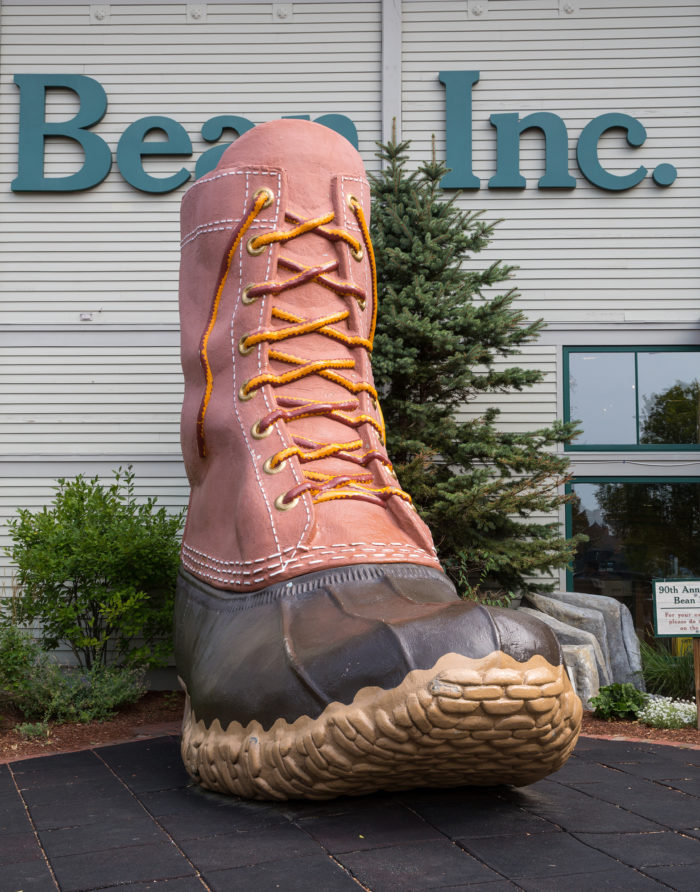 L.L. Bean Inc. has filed a motion asking a Massachusetts federal judge to dismiss a class action lawsuit challenging its denial of a customer’s request to replace old slippers after the company changed its store policy in February to only replace defective merchandise within a year of the purchase date.
L.L. Bean Inc. has filed a motion asking a Massachusetts federal judge to dismiss a class action lawsuit challenging its denial of a customer’s request to replace old slippers after the company changed its store policy in February to only replace defective merchandise within a year of the purchase date.
Plaintiff Benjamin Pershouse says he purchased a pair of women’s slippers from a Massachusetts L.L. Bean store in 2012 for $42.26. In March 2018, he attempted to get a replacement pair of slippers because the soles had worn out.
Pershouse says he thought they should be replaced at no cost under L.L. Bean’s satisfaction guarantee policy, which guarantees the company will replace defective products. However, the store manager refused to provide Pershouse with a refund, the L.L. Bean class action says.
“[A]t no place in his complaint has plaintiff alleged that these slippers were either unsatisfactory or not working, not fitting, not standing up to their task, or not lasting as long as he thought they should,” L.L. Bean wrote in its memorandum supporting its motion to dismiss the satisfaction guarantee class action lawsuit.
“He has not alleged his own reasonableness, fairness, or good faith. He has not alleged any defects of workmanship or materials.”
“Instead, he has alleged facts more consistent with a conclusion that he was trying to avoid financial liability for a pair of six year old slippers that, after a long life, had simply worn out,” L.L. Bean argues.
L.L. Bean says that consumers have misinterpreted its previous lifetime guarantee as a perpetual promise to replace or offer refunds for worn-out items. Some customers allegedly used the policy to replace products they had purchased from yard sales or other third party transactions.
In his L.L. Bean class action lawsuit, Pershouse points to many social media posts from customers who complained about the new one-year limitation on returns. L.L. Bean argues that these posts do not support Pershouse’s claim that the company’s new policy is deceptive or unfair.
Pershouse also failed to suggest that the L.L. Bean satisfaction guarantee even factored into his decision to purchase the slippers, according to L.L. Bean. He reportedly does not even make claims about what types of activities for which the slippers can be used or how long they should be expected to last.
“Plaintiff has not stated a claim,” L.L. Bean argues. “The fact that L.L. Bean declined to refund Plaintiff’s money does not, ipso facto, mean that it breached its satisfaction guarantee.”
The L.L. Bean class action lawsuit had asserted claims for breach of contract, unjust enrichment, violations of the Magnuson-Moss Warranty Act, declaratory judgment, and violations of Massachusetts law. L.L. Bean has asked the judge with prejudice so that Pershouse will not be permitted to file an amended complaint.
Pershouse is represented by Anthony L. Parkhill and Ben Barnow of Barnow & Associates PC, Michael Liskow of Wolf Haldenstein Adler Freeman & Herz LLP and David Pastor of Pastor Law Office LLP.
The L.L. Bean Satisfaction Guarantee Class Action Lawsuit is Benjamin T. Pershouse v. L.L. Bean Inc., Case No. 1:18-cv-10800, in the U.S. District Court for the District of Massachusetts.
ATTORNEY ADVERTISING Top Class Actions is a Proud Member of the American Bar Association LEGAL INFORMATION IS NOT LEGAL ADVICE
Top Class Actions Legal Statement
©2008 – 2025 Top Class Actions® LLC Various Trademarks held by their respective owners This website is not intended for viewing or usage by European Union citizens.














